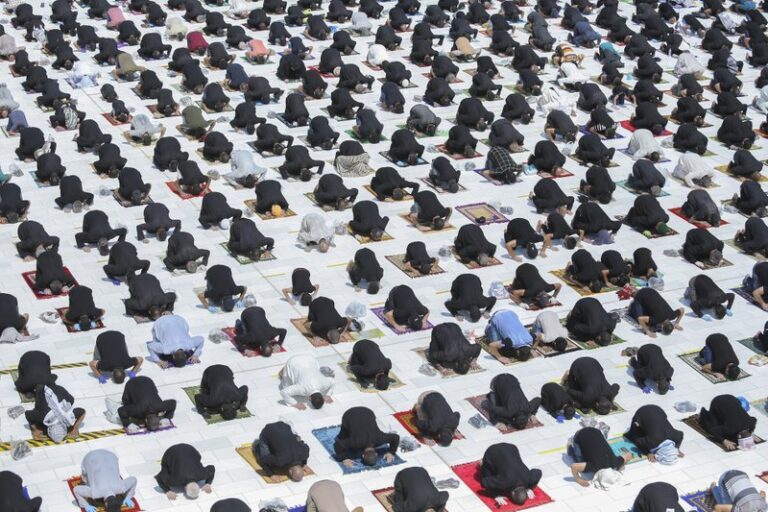
(AP) — In the busy emergency room of Baghdad’s main public hospital, Ali Abbas stood face uncovered, waiting for his sickly father. Dozens of other patients and their relatives mingled without masks.
It’s a scene that confounds health workers in Iraq, who warn that the country is entering a new wave of coronavirus cases, in part because many shirk precautions.
“I don’t believe in the coronavirus, I believe in God,” the 21-year-old Abbas said in the middle of the hospital floor, defying the facility’s rules requiring masks.
On Friday, Iraq was under its first full day of a new curfew imposed by the government in response to infection rates that have shot back up again after easing last autumn. The curfew runs all day Friday to Sunday, and from 8 p.m. to 5 a.m. the rest of the week. Mosques and schools are closed, large gatherings prohibited, and the wearing of masks and other protective gear will be enforced, according to a statement from the government.
A complete lockdown, including closing airports and borders, is also being considered, two government officials said, speaking on condition of anonymity because they were not authorized to brief the media.
New cases, down under 600 a day just a month ago, have sharply increased, reaching 3,896 a day on Feb. 18 and approaching September’s daily peak of more than 5,000. The Health Ministry says 50% of the new cases are from the new, more infectious strain that first broke out in the U.K. More than 657,000 people have been infected by the virus in Iraq and 13,220 have died since February.
Doctors told The Associated Press they’ve seen the flare-up coming for weeks. They blame a careless public and a government unable to fully enforce virus protocols.
“I am a doctor fighting public ignorance, not the pandemic,” said Mohammed Shahada, a pulmonologist at Baghdad’s al-Zahra Hospital.
At al-Zahra Hospital, the year began with just four patients in the 90-bed isolation ward. By the start of February, that jumped to 30 severe virus patients. Shahada expects more in the coming weeks.
At his private clinic, some patients have walked out rather than abide by his strict face mask requirement, he said.
Ismail Taher, a doctor at Baghdad’s Sheikh Zayed hospital, estimated that only one in 10 people walking into his hospital wear masks.
The Health Ministry said earlier this month that a new wave was being driven by religious activities — including Friday prayers and visits to shrines — and large crowds in markets, restaurants, malls and parks, where greetings with handshakes and kisses are the norm.






